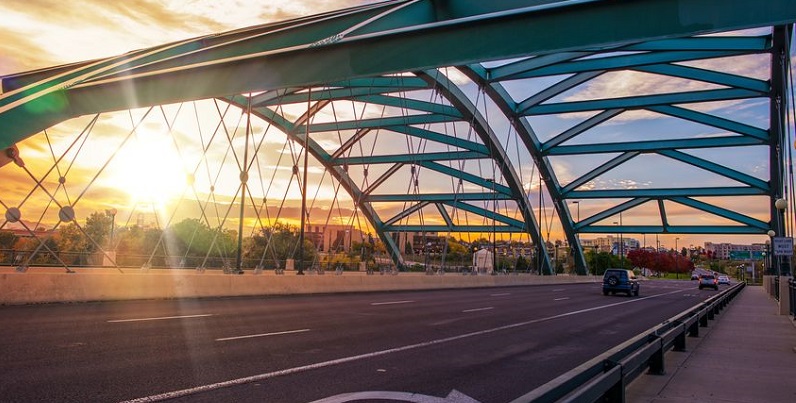Proposition 110, a 0.62 percentage point sales tax proposal before facing Colorado voters Nov. 6 would generate $21.7 billion over the next 20 years, with nearly $12 billion going to road safety projects selected by local governments.
Prop. 110 to Send $12B to Colorado Counties, Towns, Cities
A statewide road tax initiative headed before voters Nov. 6 will pay for more than just Colorado’s top-priority road needs if it’s approved. It will also provide billions of dollars to repair, improve, or replace the potholed, inadequate, crowded roads and streets maintained by counties, cities, and towns.
Proponents tout that the tax initiative will pay for more than 100 projects statewide, but according to The Denver Post, it will give more than $300 million a year to pay for those sorely desired local projects.
Proposition 110, marketed as “Let’s Go Colorado”, will impose an additional 0.62 percentage point sales tax and generate $21.7 billion over the next 20 years. The state could enjoy as much as $6 billion right away by issuing bonds paid for by the revenue. Local projects will receive 45 percent, or nearly $12 billion of the revenue stream. Besides the $300 million for roads projects, counties, and municipalities will compete for tens of millions of dollars earmarked for various transit, multimodal bicycle, and pedestrian projects.
A rival initiative, Proposition 109, nicknamed “Fix Our Damn Roads”, would require the General Assembly to issue $3.5 billion in bonds to pay for dozens of specific state highway projects. The proposition raises no additional tax revenue, however, meaning the money would be taken away from other spending in the state budget.
Planned Prop. 110 Spending Spreads Far and Thick
Although Denver, its suburbs, and other populous counties will reap millions of dollars each year from Proposition 110, rural Colorado towns and counties will get disproportionately large slices of the spending for their smaller populations, The Post reports. Even so, big-city leaders such as Mayor Michael Hancock of Denver, are wholeheartedly supporting the plan. The tax would shunt an estimated $29 million a year to Denver, significantly increasing the city’s $2 billion Mobility Action Plan.
Under the proposition, 40 percent of the revenue will go directly to local governments, half of it to cities and towns, and half to counties. The county funding will range from $10.5 million for Jefferson to $267,662 for San Juan.
The other 15 percent will go into the multimodal fund, which will provide matching grants to local governments planning to build those projects. The Colorado Department of Transportation has already prepared a list of 19 multimodal projects earmarked to receive $400 million in matching funds right away.
Hancock plans to spend Denver’s initial revenue allocation on upgrading pedestrian safety on Federal Boulevard and other select routes and on a bus-based rapid transit system running on Colfax Avenue from I-25 east to the Aurora line, The Post says. Besides that money, the project could also receive $55 million in matching money from the multimodal fund. Denver had initially planned to build the project on its own, using only funding from the $2 billion bond package city voters approved last year.
Aurora‘s $12.3 million annual share will help the city reduce its $18 million annual shortfall for road repairs, Councilman Bob Roth told The Post. Several rural county leaders told the newspaper they will use their shares to pave dirt roads and replace bridges.
Mayor Hancock said:
“You’ve got to recognize that rural Colorado is important to the health of the whole state, and it’s also import to the economic health of Denver. We need to make sure that rural Colorado is served and taken care of in this road bill. … I’m not bothered by that at all.”

